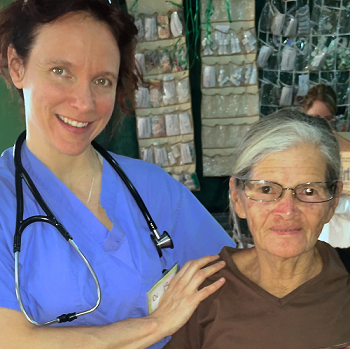Most people don’t go into nursing for the career mobility. There is room for promotions here and there, but for many, the work remains consistently the same for the entirety of their careers. And yet some nurses feel the pull to advance their careers a little bit.
Nursing leadership positions are a great way to continue doing the work you love while also incorporating more responsibilities, and yes, more compensation, into the equation. It’s not easy, but for the right person, it can be rewarding work.
Below, we take a look at skills that translate into quality nursing leadership.
Empathy
Empathy! Ha. I’m a nurse. I’ve got that in abundance. You probably, hopefully, do. It’s an intrinsic component of the work. It’s also a necessary feature of good leadership. As a supervisor, you need to be able to empathize not just with your patients, but also with the concerns of your staff.
Tech-Savvy
Nursing and healthcare in general are quickly moving into a more data-driven, digital landscape. Not only are patient records kept in the cloud now, but hospitals everywhere are relying more and more on data processing to improve patient outcomes and make better use of their limited resources.
You don’t necessarily need a degree in data analysis to work as a nursing leader — although some nurses do receive an education in digital technology.
However, you should at least be aware of what is out there. Many hospitals are technologically stunted not because they lack the means to grow into digital solutions, but because the old guard stands as a barrier.
Become knowledgeable about digital technology so that you can influence your hospital from an informed perspective.
Communication Skills
Nurses at every level wear many hats. You talk to the patient. You talk to the families. You talk to the administration and the doctors. As a regular nurse, the objective of your communication is usually to advocate for the patient. You want to make sure that their care aligns with their wishes.
You’ll still have that responsibility, but as a leader, you also need to represent the interests of the nurses working under you. They will bring their problems to you, and while you probably won’t be able to solve all of them, you’ll be the one talking it out with the other nurses, and the higher-ups.
Time Management
Just because you are a leader doesn’t mean that you don’t have your old workplace responsibilities to deal with as well. If you thought you were busy before the promotion, you’ll likely long for your old schedule after a few weeks at the new gig.
Time management is the skill that helps make the promotion negotiable.
Handle Discomfort with Grace
Leadership roles can come with natural tension. When things go wrong on your floor, you’ll often bear the brunt of it. We’re talking about anything. Patient outcomes, sure, but also scheduling conflicts, interpersonal spats that you will be expected to weigh in on and resolve and much more.
When it’s time for blame to go around, leaders can always expect a large helping of it to land on their shoulders. Fair? Maybe not but it comes with the territory.
A good leader knows how to handle these pressures with grace.
Sound Familiar?
Not surprisingly, most of the skills that make for a good nursing leader are trades that tend to be inherent to the profession in general. Nurses are usually empathetic people, and communication tends to be a key element of the job. If you can’t work as a go-between for the patient, the doctors, and the family, you’re probably not extremely effective on the job.
There are softer, harder-to-define qualities that make for a good leader as well. One of them is drive. You have to want to be a leader in a way that is distinct from simply desiring a promotion.
Think about it this way: nursing is already incredibly hard. Turnover rates are through the roof. Shifts are long and physically demanding. The work is stressful and emotionally demanding. And—
You’re preaching to the choir, love.
Right. It’s a tough job. Leadership responsibilities take those challenges and crank them up a level or two. The discerning nurse needs to ask themselves if they are up for that challenge. The western workplace mindset is such that stagnation is often seen as failure.
It doesn’t have to be that way — particularly not in healthcare. Before you pursue a leadership position, think long and hard about if you want all of the stress that comes with it.
Still There?
If you’ve weighed the consequences and still think you’d like to go ahead and try to get that promotion it’s time to start thinking about what it will take to land the job. The skills listed above might make you well adapted for the work, but that doesn’t mean they will automatically translate into the promotion that you are hoping for.
Most nurses are empathetic. Most nurses are decent communicators. You need to find ways to distinguish yourself from the pack. Continuing your education is one way to accumulate the prerequisite skills that most hospitals are looking for when they appoint their leadership roles.
Of course, getting a graduate degree is no small thing. However for a few years of your time, you might land a transformative job.
With a Bachelor’s in Health Science along with an MBA, Sarah Daren has a wealth of knowledge within both the health and business sectors. Her expertise in scaling and identifying ways tech can improve the lives of others has led Sarah to be a consultant for a number of startup businesses, most prominently in the wellness industry, wearable technology and health education. She implements her health knowledge into every aspect of her life with a focus on making America a healthier and safer place for future generations to come.
Disclaimer: The viewpoint expressed in this article is the opinion of the author and is not necessarily the viewpoint of the owners or employees at Healthcare Staffing Innovations, LLC.










